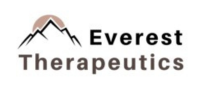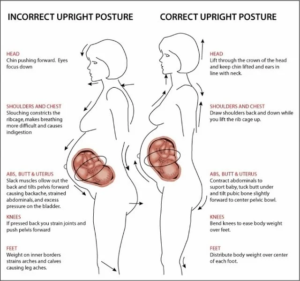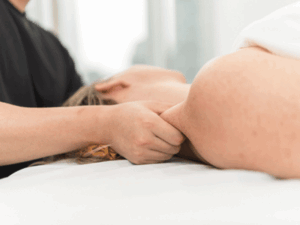Introduction
At Everest Therapeutics, a premier massage therapy clinic located in downtown Vancouver, we are proud to offer expert care to help you maintain mobility and relieve discomfort throughout your pregnancy. With over 25 registered massage therapists (RMTs), our clinic is qualified to address the unique challenges that pregnant women face, such as musculoskeletal discomfort and decreased mobility. Pregnancy is a transformative time, and while your body is nurturing new life, it can also experience a range of aches, pains, and strains as a result of the many changes it undergoes. These discomforts can be effectively managed with the help of pregnancy massage, particularly myofascial release, which has been proven to improve mobility and ease muscle tension.
Pregnancy massage, a specialized form of therapy tailored to the unique needs of pregnant women, can be especially helpful for maintaining your physical health and well-being during this time. It is designed to alleviate the specific discomforts associated with pregnancy, such as lower back pain, leg cramps, and swelling, while ensuring the safety of both mother and baby. Living in Vancouver, with its active and vibrant lifestyle, it’s important to ensure that your body remains mobile and pain-free so that you can continue to enjoy the city’s many offerings.
For pregnancy massage, we recommend the therapists below:
Pregnancy Pains & Your Body
Pregnancy brings about a cascade of changes to the female body, many of which impact the musculoskeletal system and lead to discomfort or pain. These changes are driven by a combination of hormonal shifts, postural adjustments, and the physical demands of carrying a growing baby.
Hormonal Changes
One of the key hormones at play during pregnancy is relaxin, which increases significantly in preparation for childbirth. Relaxin helps to soften and relax the ligaments in the pelvis, allowing for the necessary expansion during delivery. However, this softening doesn’t just affect the pelvic area—it also impacts other ligaments and joints throughout the body, resulting in greater joint laxity, instability, and pain. This increased flexibility, while essential for birth, can lead to joint misalignment and increased muscle strain, particularly in the lower back, hips, and pelvis.
Postural Adjustments
As the pregnancy progresses and the baby grows, the body’s center of gravity shifts forward, leading to significant postural changes. To counterbalance this shift, many women unconsciously adjust their posture by leaning backward, which places additional strain on the lower back muscles and spinal column. This can result in chronic lower back pain, tension, and muscle fatigue.
Weight Gain and Muscular Stress
The natural weight gain that accompanies pregnancy adds pressure to the musculoskeletal system, particularly in the legs, hips, and lower back. Muscles are forced to work harder to support the additional weight, often leading to muscle tightness, spasms, and discomfort. These stresses are compounded by the separation of the rectus abdominis muscles (diastasis recti), which weakens the core and places further strain on the lower back.
Understanding the underlying causes of pregnancy-related aches and pains is essential to finding effective treatments. Myofascial release is one such treatment that can help alleviate these discomforts, improve mobility, and promote overall well-being.
Myofascial Release: What Is It?
Myofascial release is a massage therapy technique that focuses on relieving tension and tightness in the fascia—the connective tissue that surrounds and supports muscles throughout the body. Fascia can become restricted or damaged due to injury, inflammation, or muscle overuse, leading to pain, decreased mobility, and stiffness. Myofascial release works by applying gentle sustained pressure to these areas of tension, allowing the fascia to relax and return to its normal, healthy state.
How Myofascial Release Works
Fascia plays a crucial role in supporting the body’s muscles, bones, and organs, creating a network that maintains structural integrity and facilitates movement. When the fascia becomes restricted, it can create adhesions or knots that limit mobility and cause pain. Myofascial release targets these areas of restriction by using slow, deep pressure to stretch and release the fascia. This process improves blood flow, reduces inflammation, and restores normal movement patterns.
In British Columbia, RMTs undergo rigorous training that includes mastering techniques like myofascial release. Their training also covers prenatal massage, ensuring that they are equipped to safely and effectively treat pregnant women. In addition to the standard education required to become licensed, RMTs who wish to focus in baby massage and prenatal care often pursue further certifications to deepen their understanding of the specific needs of this population.
The Benefits of Myofascial Release for Pregnant Women
Myofascial release offers a wide range of benefits for pregnant women, particularly when it comes to enhancing mobility and reducing pain. Here are the top five benefits of myofascial release for expectant mothers:
1. Alleviating Lower Back Pain
One of the most common complaints during pregnancy is lower back pain, often caused by postural changes and the added strain on the spine. Myofascial release can help to alleviate this discomfort by targeting areas of muscle tightness and fascia restrictions in the lower back. By releasing these tensions, myofascial release restores normal movement patterns and reduces the strain on the lower back muscles, providing relief from pain.
2. Improving Hip Mobility
The pelvis and hips undergo significant stress during pregnancy as they adapt to accommodate the growing baby. This can lead to tightness and discomfort in the hip flexors and surrounding muscles. Myofascial release works to loosen these muscles and improve flexibility, allowing for greater hip mobility and reducing pain during activities such as walking or sitting.
3. Reducing Sciatica Pain
Sciatica, a condition where the sciatic nerve is compressed or irritated, is a common issue during pregnancy. This can lead to sharp, shooting pain in the lower back, hips, and legs. Myofascial release can help to reduce sciatica pain by addressing the underlying muscle tension and fascial restrictions that contribute to the condition. By relieving this tension, myofascial release alleviates pressure on the sciatic nerve, reducing pain and improving mobility.
4. Relieving Pelvic Pain
Pelvic pain is another common issue during pregnancy, often caused by the increased pressure on the pelvic joints and the softening of ligaments due to relaxin. Myofascial release can help to relieve this pain by targeting the fascia around the pelvic region and reducing the tension that contributes to discomfort. This can lead to a significant reduction in pain and improved mobility in the pelvic area.
5. Enhancing Overall Mobility
As pregnancy progresses, many women experience a general decrease in mobility due to muscle tightness, joint stiffness, and pain. Myofascial release helps to enhance overall mobility by reducing fascial restrictions and improving muscle flexibility. This allows for greater ease of movement and helps women to maintain an active lifestyle throughout their pregnancy.
A Massage Therapy Appointment at Everest Therapeutics
At Everest Therapeutics, we take a personalized approach to pregnancy massage, ensuring that each treatment is tailored to meet your unique needs and preferences. A typical appointment includes the following components:
Assessment
Your appointment begins with a thorough assessment of your current condition, including a discussion of any pain, discomfort, or mobility issues you may be experiencing. This allows our RMTs to develop a customized treatment plan that addresses your specific concerns.
Treatment
During the treatment, our RMTs will use myofascial release techniques to target areas of tension and restriction in the fascia. Depending on your stage of pregnancy, you may be positioned in a side-lying position or face down with the support of specialized pregnancy pillows. These pillows help to ensure that you remain comfortable and fully supported throughout the session.
Treatment Plan
Following the treatment, your RMT will discuss a treatment plan with you, which may include recommendations for follow-up appointments, stretches, and exercises that can help to maintain mobility and reduce discomfort between sessions.
Homecare
We believe in empowering our clients with the knowledge and tools they need to care for their bodies at home. As part of your treatment plan, we will provide you with homecare advice, including self-massage techniques, stretches, and tips for maintaining good posture during pregnancy.
FAQ Section
Is it OK to get a massage while pregnant?
Yes, it is safe to get a massage while pregnant, as long as it is performed by a registered massage therapist who has been trained in prenatal massage. At Everest Therapeutics, all of our RMTs are certified and experienced in providing safe and effective massage therapy for pregnant women.
Can I lay on my stomach for massage while pregnant?
Yes, it is generally safe to lie on your stomach while pregnant, as long as you have the correct equipment. At Everest Therapeutics, we use specialized pregnancy pillows that allow you to lie comfortably whichever way you wish: on your side or in a supported face-down position without putting pressure on your abdomen. If you are uncertain about lying face-down, you can always speak with your primary care physician before your treatment.
How many weeks pregnant do you have to be to get a massage?
You can receive a massage at any stage of your pregnancy, although many women prefer to wait until after the first trimester when the risk of miscarriage is lower. Our RMTs are trained to adapt their techniques to safely treat clients at any stage of pregnancy.
Is this covered under my extended health insurance?
Yes, most extended health insurance plans cover pregnancy massage provided by a registered massage therapist. Please check with your insurance provider to confirm your coverage.
Do you provide direct billing?
Yes, Everest Therapeutics offers direct billing to most major insurance providers, making it easy for you to access the care you need without the hassle of submitting claims yourself.
Conclusion
Pregnancy is a time of significant physical change, and maintaining mobility is essential to ensuring a comfortable and healthy journey. Myofascial release offers numerous benefits for pregnant women, from alleviating lower back pain to improving overall mobility. At Everest Therapeutics, our highly trained and experienced RMT




